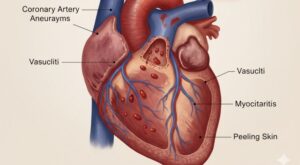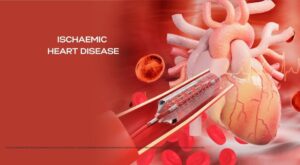Can a Father’s Alcohol Consumption Affect Their Baby?

When it comes to pregnancy and baby health, much of the focus has traditionally been on maternal habits—especially during and before conception. However, emerging research is shedding light on an equally important question: Can a father’s alcohol consumption affect their baby? The answer, increasingly, appears to be yes.
Let’s explore the science behind paternal alcohol exposure, how it can affect fertility, pregnancy outcomes, and even the long-term health of children.
1. The Traditional Assumption – Only Maternal Factors Matter?
Historically, public health messages around pregnancy have emphasized maternal behaviors: avoiding alcohol, eating well, managing stress, and taking prenatal vitamins. While these are undoubtedly vital, recent studies suggest that the father’s health—and specifically his alcohol use—can significantly influence reproductive outcomes.
In fact, the quality of the sperm and the epigenetic information it carries may be affected by alcohol use.
2. How Alcohol Affects Male Fertility
Reduced Sperm Quality
Alcohol can negatively impact:
- Sperm count
- Sperm motility (movement)
- Sperm morphology (shape)
According to the American Society for Reproductive Medicine, heavy drinking can lead to reduced testosterone levels, increased estrogen, and decreased sperm production.
DNA Damage in Sperm
Sperm are particularly vulnerable to oxidative stress. Alcohol contributes to the formation of reactive oxygen species (ROS) which can cause DNA fragmentation in sperm cells. Damaged sperm DNA has been linked to early miscarriage, implantation failure, and birth defects.
3. Epigenetics and Paternal Alcohol Exposure
One of the most fascinating—and concerning—areas of study involves epigenetics. This is the science of how environmental factors (like alcohol) can change the way genes are expressed without altering the DNA sequence itself.
What the Research Says:
- A 2019 study published in JAMA Pediatrics linked paternal alcohol use prior to conception with an increased risk of congenital heart defects in babies.
- Another animal study published in Nature Communications showed that chronic alcohol consumption in male mice led to offspring with growth restriction and brain abnormalities—mirroring features of Fetal Alcohol Spectrum Disorders (FASD), even though the mothers were not exposed to alcohol.
4. Paternal Alcohol Use and Fetal Development
While fetal alcohol syndrome (FAS) is caused by maternal alcohol use during pregnancy, paternal alcohol use can contribute to other forms of developmental delay and disorders via epigenetic and sperm-related pathways. Studies have shown associations with:
- Cognitive and behavioral disorders
- Reduced birth weight
- Increased risk of ADHD and autism spectrum disorders
5. Alcohol and Pre-Conception Health
Many reproductive specialists now advise both men and women to avoid alcohol for at least 3 months before trying to conceive. This is because:
- Spermatogenesis (sperm production cycle) takes about 74 days.
- Abstaining during this period gives the body time to produce healthier sperm.
6. What Should Future Fathers Do?
If you’re planning to conceive, consider the following:
Reduce or Eliminate Alcohol Intake
Light to moderate drinking may be acceptable, but heavy or chronic alcohol use is strongly discouraged.
Adopt Healthy Lifestyle Habits
Regular exercise, balanced diet, quality sleep, and stress reduction improve sperm quality and overall fertility.
Consult a Healthcare Provider
If there are concerns about fertility or past alcohol use, speak with a doctor or fertility specialist for guidance and support.
7. Takeaway: Yes, It Matters
Alcohol consumption isn’t just a maternal issue. Paternal alcohol use, particularly in the months leading up to conception, can affect the health and development of a baby—possibly in profound and long-lasting ways. The good news? These effects are largely preventable.
Being mindful of your habits today can help give your future child a healthier start.
References:
- JAMA Pediatrics (2019): Association Between Paternal Alcohol Consumption and Congenital Heart Defects
- Nature Communications (2016): Epigenetic inheritance of alcohol-induced effects through the male germ line
- Effects of alcohol on male reproduction
- National Institutes of Health (NIH): Paternal exposures and effects on offspring development




